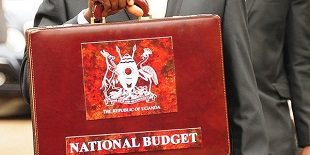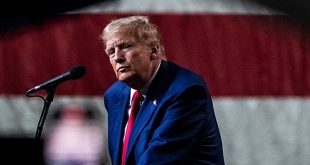
By Mubatsi Asinja Habati
The political impasse in Ivory Coast following presidential elections has caught the world’s attention. President Laurent Gbagbo refuses to quit after losing the election to opposition candidate Alassane Ouattara who the Ivorian electoral commission declared winner. The Independent’s Mubatsi Asinja Habati spoke to Godber Tumushabe, the Executive Director of the NGO, Advocates Coalition for Development and Environment (ACODE), a local public policy research and advocacy think-tank, about the lessons for Uganda.
Ivory Coast’s Electoral Commission declared opposition leader Alassane Ouattara the winner of the presidential election but Laurent Gbagbo refuses to leave. Can something like that happen here?
There is a possibility it can happen especially given that the incumbent has been setting the tone with pronouncements like: ‘I can’t handle over power to the opposition’, ‘I hunted and killed my animal; people should not just come and celebrate’. But I think in terms of election outcome; there are two possibilities. One, the incumbent will ensure that the result is announced in his favour or not at all. In any case, I don’t think he can sustain a result that is not in his favour because Ugandans would chase him away if he hangs on to power. In the event that the Electoral Commission announces a different result, I think our president is a more decent man than what Gbagbo presents to us. He could gracefully bow out and retire.
Why do you say so?
President Museveni has projected himself as a democrat from the time he took over power. He came up with the local council structure of administration, which is a democratic structure, and presented the most elaborate and comprehensive constitutional discourses that delivered the 1995 constitution. The unfortunate thing is that he is also a person who seems uncomfortable with the rules because after 1995, he begins to rewrite the constitution when the rules he had put in place become a constraint to his operations.

Some opposition candidates have been saying that they will force Museveni out of power. Considering that Museveni controls all state organs especially the army and police, how possible is this?
I don’t think that it is opposition leaders to push Museveni out of power. It is the people of Uganda. We are the custodians of our democracy. In the event that the incumbent President loses, we will see citizens coming out to defend the constitution and I think that the UPDF, an army of relatively highly educated men and women whom, would side with the people of Uganda to defend the constitution.
Would that not require independent institutions?
Yes, the institutions are not independent. But in a context where the Electoral Commission announces a winner who is not the incumbent like in the case of Ivory Coast, essentially you are setting the people of Uganda against the incumbent president and the ruling party. The UPDF that I know are so disciplined and educated that I don’t envisage a situation where the army actually allies with the incumbent against the people of Uganda. That would not be a fight between President Museveni and the opposition. It would be a fight between Museveni and NRM with the people of Uganda.
Some observers are saying that whether they win or lose, the opposition will announce results in their favour. How is this likely to affect the country?
There are two sides of the problem here. We have an Electoral Commission that is not trusted by the opposition parties but also by different sections of the public. I don’t think you can say that the Electoral Commission is an independent arbiter in the electoral process because of the nature of its: appointment, tenure, recruitment of its staff, and financing; you really have problems with it. As a result, we will always have the outcome of the election contested.
The opposition parties can lose and if they do not concede defeat it can become a problem if it raises doubt among the population that they have not been treated fairly. That is a precursor for conflict. That is the challenge that we have. The government has not done enough to build the confidence in the population and the opposition about the independence of the Electoral Commission and that is a major fault line in our election process. This is could impact on the way all the political players view the outcome of the election. You could easily have post election violence if the losers don’t concede. If not you can have suppression of dissent as government would deploy the various security agencies to quell dissenting voices then you have major human rights violations in the end.
Any other lesson from the Ivory Coast crisis?
The idea of African strong men could easily come to an end when you combine the Ivorian experience and the indictment of senior politicians in Kenya by the ICC. The way the UN, AU and ECOWAS have come together to approach the Ivory Coast situation gives hope that we are not going to have these African strong men bullying the citizens because they will be aware they are being watched. They will know that their days are numbered, they will be thrown out or be tried The Hague.
 The Independent Uganda: You get the Truth we Pay the Price
The Independent Uganda: You get the Truth we Pay the Price


